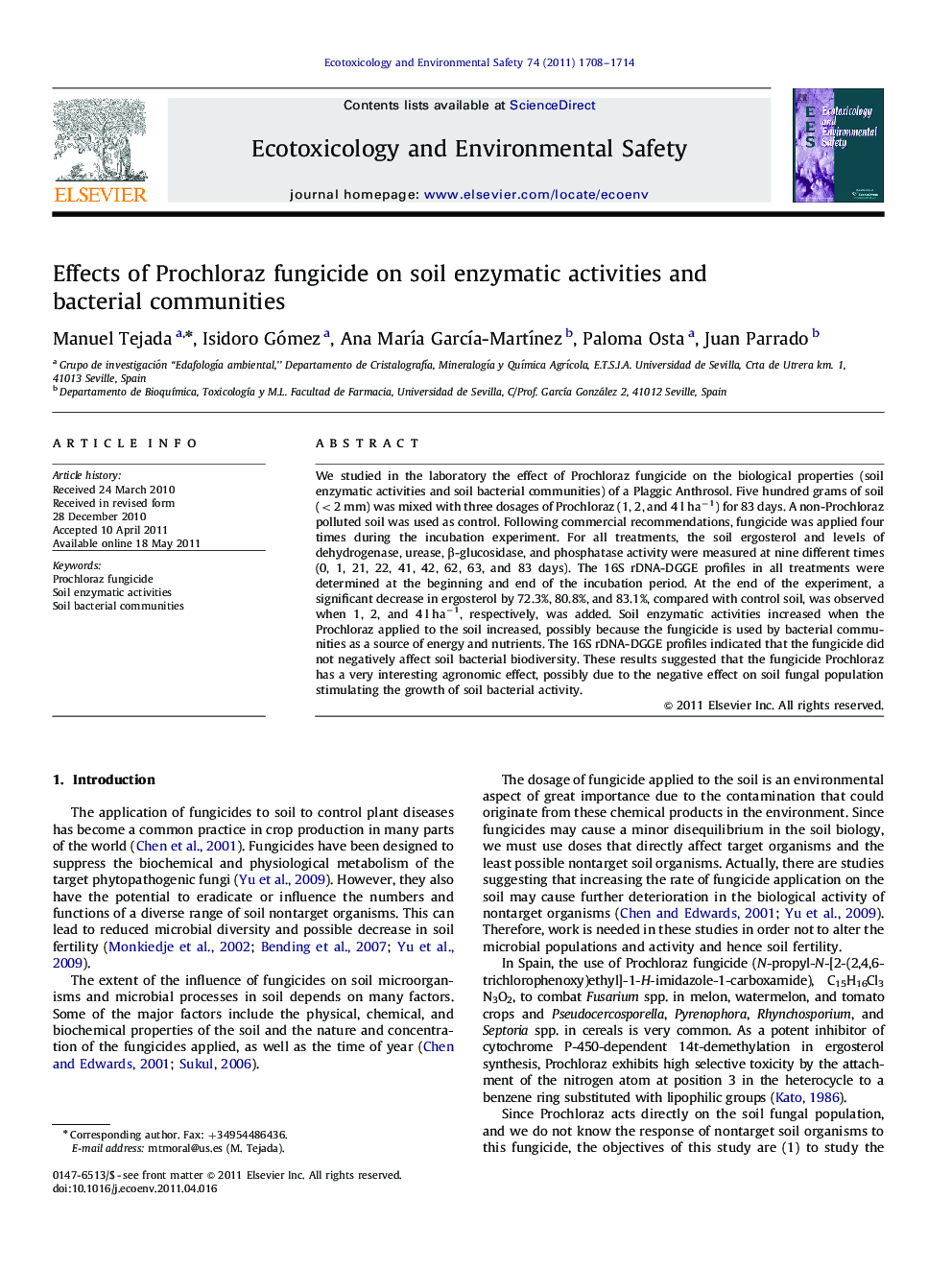| Article ID | Journal | Published Year | Pages | File Type |
|---|---|---|---|---|
| 4421107 | Ecotoxicology and Environmental Safety | 2011 | 7 Pages |
We studied in the laboratory the effect of Prochloraz fungicide on the biological properties (soil enzymatic activities and soil bacterial communities) of a Plaggic Anthrosol. Five hundred grams of soil (<2 mm) was mixed with three dosages of Prochloraz (1, 2, and 4 l ha−1) for 83 days. A non-Prochloraz polluted soil was used as control. Following commercial recommendations, fungicide was applied four times during the incubation experiment. For all treatments, the soil ergosterol and levels of dehydrogenase, urease, β-glucosidase, and phosphatase activity were measured at nine different times (0, 1, 21, 22, 41, 42, 62, 63, and 83 days). The 16S rDNA-DGGE profiles in all treatments were determined at the beginning and end of the incubation period. At the end of the experiment, a significant decrease in ergosterol by 72.3%, 80.8%, and 83.1%, compared with control soil, was observed when 1, 2, and 4 l ha−1, respectively, was added. Soil enzymatic activities increased when the Prochloraz applied to the soil increased, possibly because the fungicide is used by bacterial communities as a source of energy and nutrients. The 16S rDNA-DGGE profiles indicated that the fungicide did not negatively affect soil bacterial biodiversity. These results suggested that the fungicide Prochloraz has a very interesting agronomic effect, possibly due to the negative effect on soil fungal population stimulating the growth of soil bacterial activity.
